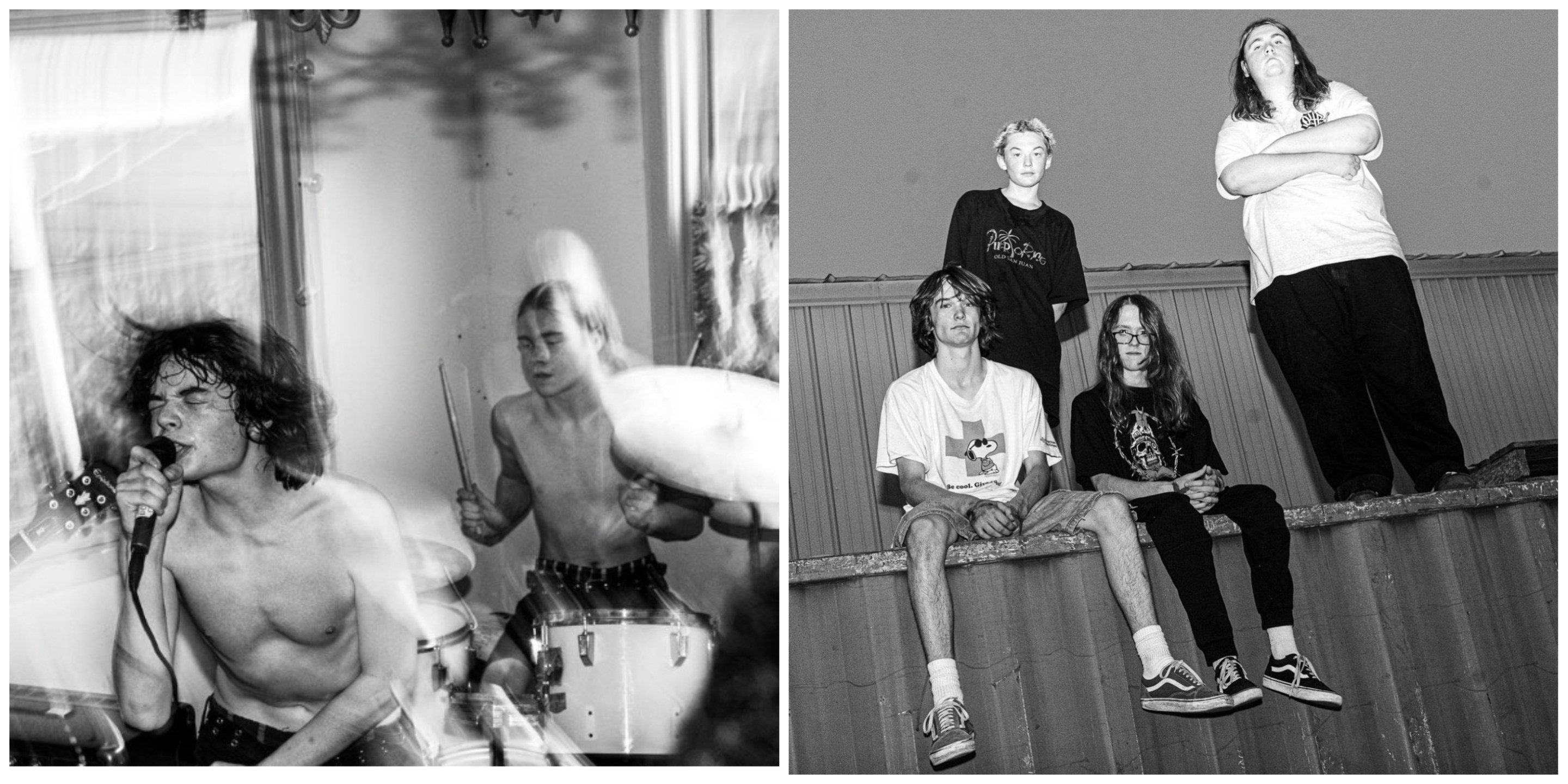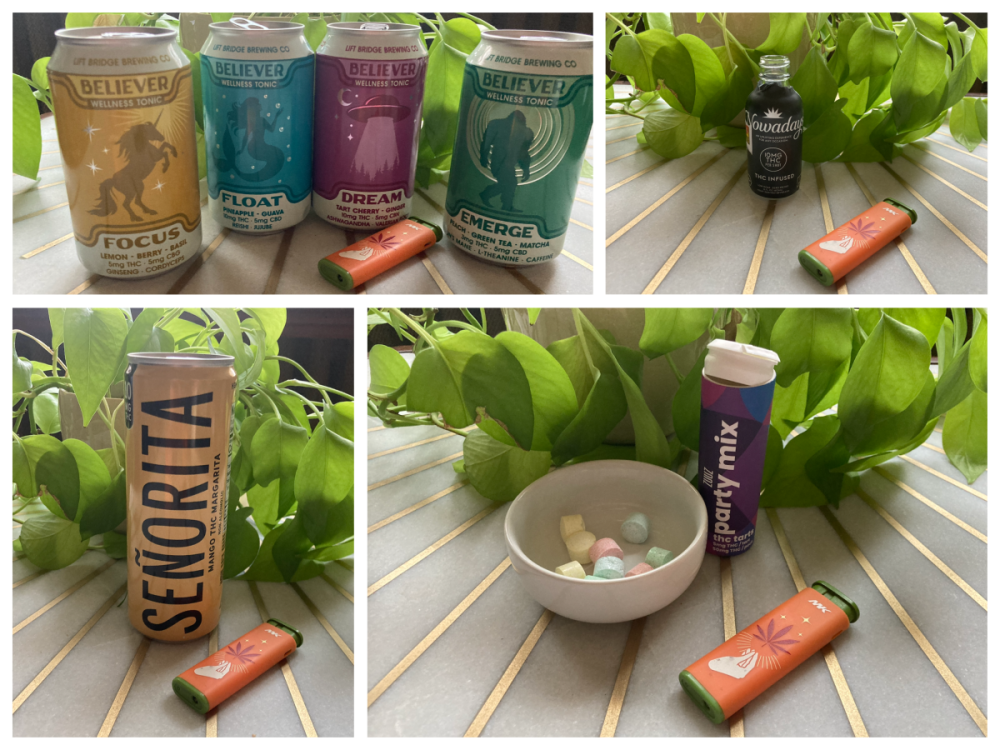Whatever you think the American Dream is, you’re probably wrong.
Preston Mescall of Sartell, Minnesota’s Identity Crisis was living the real American Dream Wednesday, September 14, 2023. During his band’s set at the freshly reopened Seward Cafe, Mescall was playing a Gibson Flying V through a Marshall half stack while someone wearing a panda hat did actual cartwheels in the center of the pit. There is nothing greater in this world to aspire to.
Identity Crisis is one of a pair of central Minnesota hardcore bands carrying dual citizenship in the Twin Cities scene. The other is Monticello’s Bad Supremacy. Both are high-school aged, but their first releases, Identity Crisis’s No More Time EP and Bad Supremacy’s Demo, show major debts to hardcore’s first waves in the early ‘80s—all sarcastic lyrics and roaring, distant recordings with the raw immediacy of a grainy photo.
Teenagers built hardcore, and throughout its history teenagers have ripped hardcore to studs and rebuilt it. Reluctant straight-edge progenitors Minor Threat broke up in 1983, and by 1985 Youth of Today were explicitly trying to revive their spirit. Whenever one generation of bands begins pulling the genre in a new direction, the next can be relied upon to claw it back to fundamentals, reviving what they saw as a purer vision. Inevitably, the revivalists fail, and they create something new in the process. Retrenchment and progress are intertwined in punk, and sometimes they’re the same thing. A Goethe quote is strangely appropriate: “That which thy fathers have bequeathed to thee, earn it anew if thou wouldst possess it.”
Identity Crisis haven’t just studied their influences—they’ve shown their work. Their Bandcamp page (RIP Bandcamp?) hosts a recording of one of their first shows at Palmer’s Bar on the West Bank, and the setlist is littered with covers: Wire’s “12XU,” Nena’s “99 Red Balloons,” the Vaselines’ “Son of a Gun,” Bad Brains’ “Sailin’ On.” Minor Threat covered “12XU” on an early EP, and 7 Seconds covered “99 Red Balloons” on 1985’s Walk Together, Rock Together. In addition to playing classic hardcore, Identity Crisis throw in the same early punk covers a hardcore band might have played in 1982, the same apocalyptic pop hit cover that one played in ‘85.
In addition to Mescall, Identity Crisis includes vocalist Eliott Dingman, drummer (and brother to Eliott) Silas Dingman, and bassist Ana Huff. The band formed about a year ago and has moved quickly: That Palmer’s recording features an early lineup, with Eliott on both guitar and vocals. They released No More Time last December, and they put out a second EP, My Own Path, in mid-August.
The Dingmans grew up in a musical household, and their band’s roots go back to Eliott and Silas jamming in their basement. Silas has been drumming for over a decade (“since I was, like, three”) and Eliott has played guitar for years but only started singing about a year ago. Mescall and Huff both picked up their instruments two or three years ago. Eliott found his way to hardcore by tracing backward from grunge and skate punk, and he describes landing on the genre in epiphanic terms: “When I found hardcore I was like, ‘This is what we’ve gotta do.’”
Hardcore and the music it’s spawned are big right now—Taco Bell commercial big. But the raw sounds of classic early ‘80s hardcore haven’t been a major part of this surge, at least not the way Identity Crisis and Bad Supremacy play it. Bands more commonly ape crossover thrash, or smuggle in influences from ‘90s and aughts alt-rock and metal.
Once he found it, Eliott evangelized hardcore to his brother and their bandmates.
“I listened to more metal,” Mescall says. “And then I met these guys, and they were like ‘yo, you should listen to this, this, this, this, this.”
That enthusiasm of musical discovery comes through in the songs of both Identity Crisis and their friends in Bad Supremacy; it breathes continued life into moves that have been around a long time.
Bad Supremacy came together out of afterschool skate sessions. Guitarist Sam Zachman, vocalist Cameron Lundy, bassist Andrew Swanson, and drummer Cameron Larsen formed their band first and learned to play as they went.
“When we started playing, it was just like an idea,” Larsen says. “We wanted to be in a band, but we didn’t know how to play. So that was our first mistake.”
They started with Nirvana covers and worked their way back to hardcore; their particular Nirvana preferences—more Bleach than Nevermind—foreshadowed their current sound.
“We really liked the super old Nirvana, like demos and stuff,” Lundy says, “which are more punk-based, and that led into Bad Brains and Minor Threat, Black Flag, ‘80s hardcore.”
Although Bad Supremacy’s tastes go back four decades, Swanson mentions one particularly modern influence on the band’s development: online video. YouTube and TikTok overflow with electrifying videos of hardcore sets past and present, which provides an easy entry point to the all-important live experience, especially for rural or suburban kids.
Both bands noted that shows in their own towns are hard to come by. Bad Supremacy played their first show at their middle school. That was followed, months later, by a house show. They started playing out more consistently this spring.
“It’s definitely hard to find people,” Zachman says. “It’s not hard to find bands, but it’s hard to find venues to play at that are closer by.”
There aren’t a lot of punk bills to be found in Sartell or Monticello. The next show on Bad Supremacy’s calendar is at Witchdoctor, a guitar shop and record store in Milaca. Both bands make fairly regular trips to the metro and have played shows at The Shed, a St. Cloud skatepark. “If it’s not punk bands, then the rest of the music in St. Cloud is, like, cover bands,” Identity Crisis’s Huff says.
Identity Crisis are one step ahead in the hardcore band life cycle, with one more record out and a short tour done in early September. (The Dingmans’ and Mescall’s parents accompanied them on tour. “I was parentless,” Huff deadpanned.)
The bands have occasionally helped each other out, and the Dingman brothers recorded Bad Supremacy’s demo.
Identity Crisis’s second recording, My Own Path, displays their remarkable growth in a short time. The recording is more muscular, Eliott’s vocals more guttural. Opener “Proud” shifts into a luxuriant (by hardcore standards) shout-along half-time breakdown. There’s a jazzy interlude with brushed drums (it’s called “Interlude”) and a 17-second song (it’s called “Short One”). Best of all is minute-long closer “Big Man,” on which the band stops for a moment of tense silence halfway through: Huff’s bass re-enters, then a ghostly moan of guitar feedback, then Silas bursts in with a high-speed Latin groove, but only for an exhilarating few seconds before the band rides out on the song’s initial galloping beat.
The record’s songwriting was informed by the band’s early shows in the city, which were also some of their earliest in-person experiences of the broader hardcore community. They set out to make bodies move.
“We had never played like a ‘hardcore’ show really before [one of their first metro shows] at Caydence [Records & Coffee in St. Paul],” Eliott says. “And being so far away, we had never gone to any shows, so... it didn’t really cross our minds that there would be certain parts that people would mosh to and not mosh to, and it’s really fun to see people dance to your songs, so we put a lot more mosh parts in our new songs.”
Progress is also on the minds of Bad Supremacy. They’re hoping to record an EP soon, working once again with the Dingmans.
“We always are sounding different,” Zachman says. "And as we progress, we’re changing our sound up a lot.”
One thing that might not change is their group preference for the dank, dark, stripped-down production aesthetic established by their heroes from the ‘80s. All four bandmates expressed admiration for the scuffed recordings of groups like Void and their number one influence (which they named in unison during our interview): Minor Threat.
“We just like the older stuff,” Zachman says. “I think it is a lot of, like, we like the tone, how it sounds.”
What draws a band of teens in the 2020s to the underground music of teens from the 1980s? Maybe in its slapdash intensity, its peerless, careening forward momentum, ‘80s hardcore still conveys the youthful urgency of its creation across the decades.
“The old stuff was brand new,” Larsen says. "No one had ever done it before.”
And each generation makes it new again.






